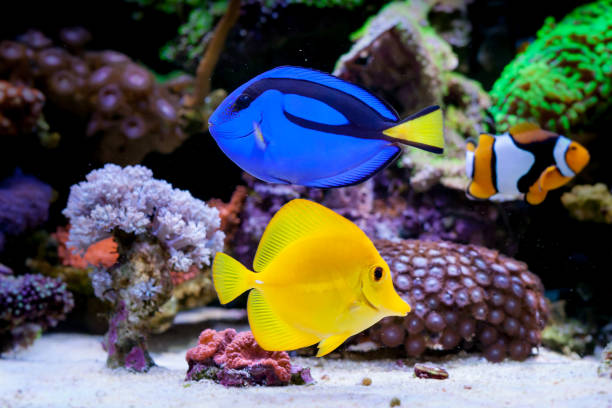Delving into the captivating world of aquarium-keeping offers an intriguing and rewarding experience. The vibrant colors, the fascinating behaviors, and the soothing ambiance created by aquatic life forms are truly unparalleled. However, there is often a considerable amount of deliberation involved with starting an aquarium – primarily the choice between marine or freshwater fish. This quintessential difference impacts not only the type of aesthetic one might prefer but also dictates your must-knows and to-dos when it comes to fish care. In this illuminating discussion, we provide an in-depth overview, ranging from the basic differences between marine and freshwater fish to detailing the essential care requirements for both, and tackling common challenges in aquarium-keeping.
Understanding the Basic Differences Between Marine and Freshwater Fish
Physiological Structure & Functionalities
Two critical factors establish the fundamental differences between marine and freshwater fish: osmoregulation and temperature.
Osmoregulation is a process by which organisms maintain an internal balance of salt and water in their body. Freshwater fish live in an environment that is hypotonic to their cells, meaning they have less salt concentration than their cells. They manage this by drinking minimal water and excreting a high quantity of diluted urine to avoid becoming waterlogged.
In contrast, marine fish live in an environment hypertonic to their cells, meaning the sea water has a higher salt concentration. They handle this by drinking large amounts of water and excreting small quantities of concentrated urine to avoid dehydration.
Temperature, likewise, significantly impacts the care requirements of marine and freshwater fish. While freshwater fish can typically handle a broad range of temperatures due to variable climates in rivers and lakes, marine fish often require more uniformly warm temperatures, reflecting their oceanic habitats.
Natural Habitat and Behaviors
Habitat differences between marine and freshwater fish affect their behavioral patterns and nutritional requirements significantly. Marine fish inhabit various depths of vast oceans, resulting in a diet primarily composed of other sea organisms. Their environments generally have rocky terrains and coral reefs, and hence these fish are accustomed to stronger currents and a higher percentage of oxygen.
Freshwater fish, on the other hand, live in rivers, streams, and lakes. These environments often face changing water levels and flow rates, creating diverse dietary requirements for this type of fish. Some are omnivores, eating plants, insects, and smaller aquatic organisms, while others may be strictly herbivores or carnivores. The habitats of freshwater fish generally have mud or sand bottoms with vegetation and fallen logs, thus, these fish are used to slower current speeds and a lower oxygen content.
Care Requirements for Marine and Freshwater Fish
The care requirements of marine fish are often more complex than those of freshwater fish. Salinity, pH, and temperature are among crucial factors that marine fish owners need to monitor constantly. Frequent water changes and careful selection of food to replicate their diet in the wild are also necessary.
On the other hand, freshwater fish care generally requires less technical knowledge and equipment. After setting up a suitable aquarium with a comfortable temperature and the proper pH level, the most significant tasks include regular feeding and maintaining good water cleanliness. The water change is less frequent compared to a marine tank, and the dietary requirements can be mostly fulfilled with store-bought fish food. However, one should be aware that certain species may have specific requirements.
Particular Care needs for Specific Fish Species
It’s important to remember that the level of care can vary greatly within both marine and freshwater species. Some marine fish species, like Clownfish or Damselfish, adapt well to aquarium life and have lower care needs. However, others, such as Moorish Idols or Mandarin Dragonets, have specific dietary or habitat needs that can be challenging to replicate.
Likewise, for freshwater fish, species like Goldfish or Guppies are known to be hardy and adapt well to various environments with minimal care requirements. In contrast, Discus or African Cichlids require carefully controlled water parameters and specific diets.
When it comes to maintaining both marine and freshwater fish, there are certain general differences due to the distinct natural habitats, behaviors, functionalities and physiological structures of each category of fish which are worth paying attention to. Nonetheless, having a comprehensive understanding of the individual species’ specific needs is vital as well.
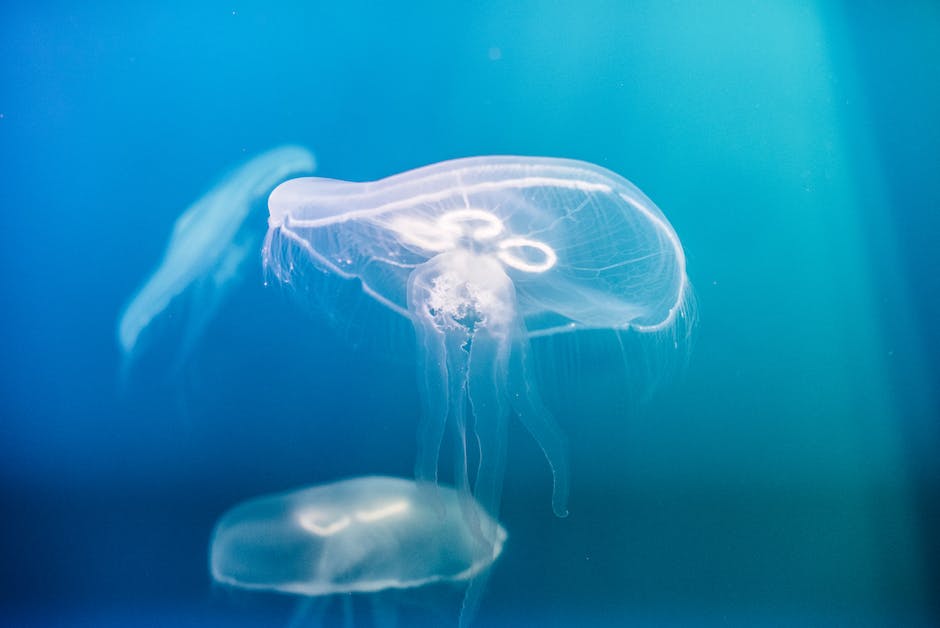
Care Requirements for Marine Fish
Diving Into the Basics of Marine Fish Care
Let’s start off with marine or saltwater fish which live in environments that are high in salinity, thus necessitating a specific set of conditions in order to thrive. Fundamental to the care of marine fish is the maintenance of the correct level of salinity in your aquarium. This is a reflection of the quantity of salts that are dissolved in the water, generally needing to be around 35 parts per thousand (ppt) for a marine environment.
A refractometer, hydrometer or a salinity probe can measure salinity. In order to maintain the appropriate salinity levels, you’ll need to regularly carry out checks and make necessary adjustments. This usually entails adding marine salts to freshwater during your water changes instead of directly adding to the fish tank as abrupt changes in salinity have the potential to be harmful to fish.
Balancing pH Levels for Marine Fish
Another crucial aspect of marine fish care is maintaining the correct pH level. pH is a measure of acidity or alkalinity, with 7 being neutral. Marine fish typically require a pH between 8.0 and 8.4. If the pH falls below this range, it can stress the fish, leading to disease or even death.
The pH level in a saltwater aquarium can be balanced using several buffers available in pet stores. Crushed coral and aragonite sand also work as natural buffers. It’s important to note that pH should be adjusted gradually, with no more than 0.2 difference in a 24-hour period to prevent shock.
Maintain Appropriate Water Temperature
Water temperature is exceptionally crucial to marine fish. Most marine fish need a stable water temperature, typically between 72 and 78 degrees Fahrenheit. Sudden changes in temperature can cause severe stress to fish, potentially leading to a weakened immune system and susceptibility to disease.
Aquarium heaters are useful for maintaining a steady temperature, but the environment surrounding the tank, including window placement, sunlight exposure, and room temperature, should also be considered.
The Importance of a Proper Diet for Marine Fish
Marine fish need a balanced and varied diet to remain healthy. Unlike many freshwater fish, marine species often need a higher protein diet. Live or frozen foods like krill, shrimp, and squid can be good choices, as well as specially-formulated marine fish pellets and flakes.
Regular feeding, usually once or twice a day, is ideal. But, an over-fed fish can produce more waste, which can affect the water quality.
Considering the Right Tank Equipment
Caring for marine fish also requires specific tank equipment. Strong filtration systems are crucial to maintaining water quality. Additionally, marine fish tanks often require protein skimmers, a device that removes organic compounds before decomposing and contributing to the nitrogen cycle.
Whereas some freshwater fish can tolerate still water, many marine fish thrive with water movement that simulates tides and currents. Wave-making devices can replicate these movements.
Contrasting Freshwater and Marine Fish Care
Freshwater and marine fish differ in the distinct environments they thrive in and thus, their care requirements also vary. Freshwater fish often survive in environments of lower salinity, lower pH levels, and depending upon the species, different temperature ranges. Similarly, their dietary requirements are typically less intricate than marine fish, often necessitating less protein. They typically demand less stringent filtration systems, and some species can manage devoid of additional water movements.
Nonetheless, each type of fish, be it marine or freshwater, harbors distinct care requirements. Researching and understanding the specific needs of different fish species in your aquarium is of primary importance.
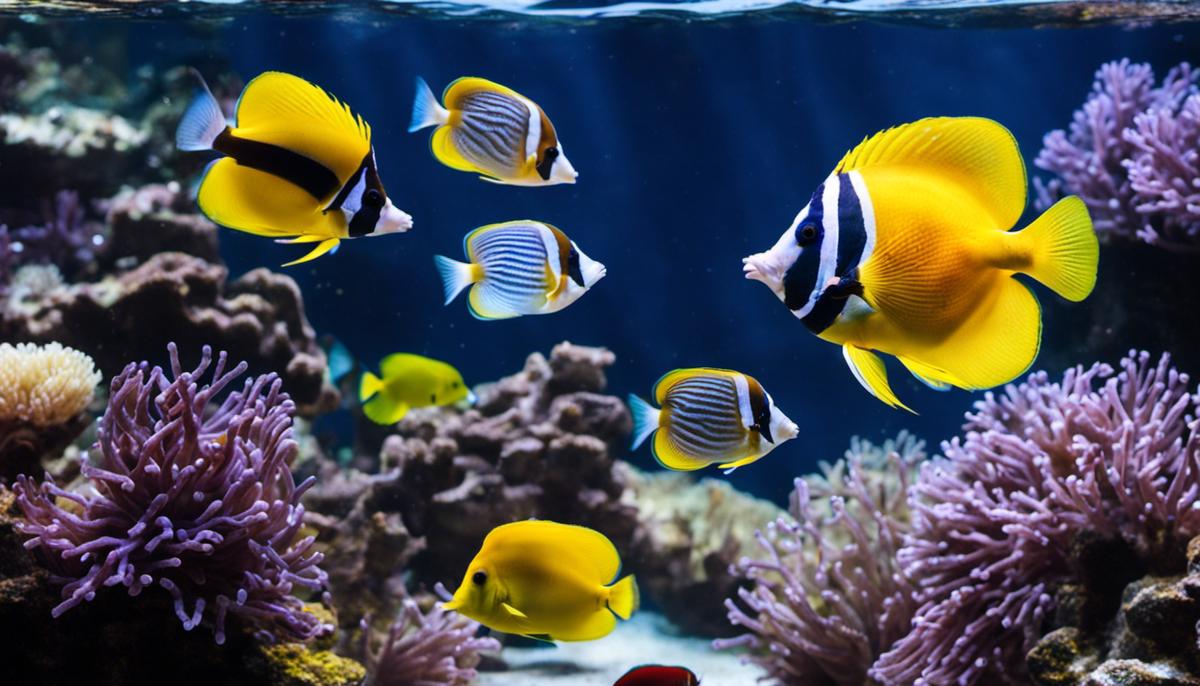
Freshwater Fish Care Essentials
Key Aspects of Freshwater Aquarium Maintenance
Though less elaborate than caring for marine fish, maintaining freshwater fish health entails certain vital practices. The first of these involves regulating the pH levels in the water environment which are critical for fish well-being. Most freshwater fish prosper within the pH range of 6.5 to 7.5, but some may demand a bit higher or lower pH range. Managing water hardness, specifically the levels of dissolved calcium and magnesium, should also be closely tracked to safeguard fish health. Research into the specific needs of the fish species you plan to incorporate in your tank is crucial.
Freshwater fish nutrition involves offering a balanced diet comprised of flakes, pellets, frozen, or live food. The optimal choice highly depends on the fish species you are dealing with as eating habits invariably differ among fish types.
The design and set up of your aquarium play a crucial role in fostering the health of your freshwater fish. Often, freshwater species thrive better in well-planted tanks which recreate their natural habitats. The plants contribute to oxygen production, aid in nitrate absorption, function as refuge, and some species even utilize them as a supplementary food source.
Comparisons Between Marine Fish Care and Freshwater Fish Care
Comparatively, marine fish care can be more complex and demanding than freshwater fish care. Marine aquariums require specific and consistent water parameters to mimic ocean conditions. These include not just pH and hardness, but also salinity, temperature, and alkalinity. Any shifts in these parameters can prove disastrous for marine ecosystems.
Marine species generally need a broader and more nutrient-dense diet than freshwater fish. They often feed on a wider variety of food, including a greater number of specific live feed.
The tank environment for marine fish also tends to be more complex. Instead of just plants, marine tanks often include rock formations, complex coral structures, and a more diverse community of inhabitants.
In essence, the care required for both marine and freshwater fish is unique and necessitates a regular commitment to ensure their survival and well-being. The process of caring for freshwater fish may appear to be simpler and more direct, but it still entails steady attention to providing the appropriate conditions for the fish.
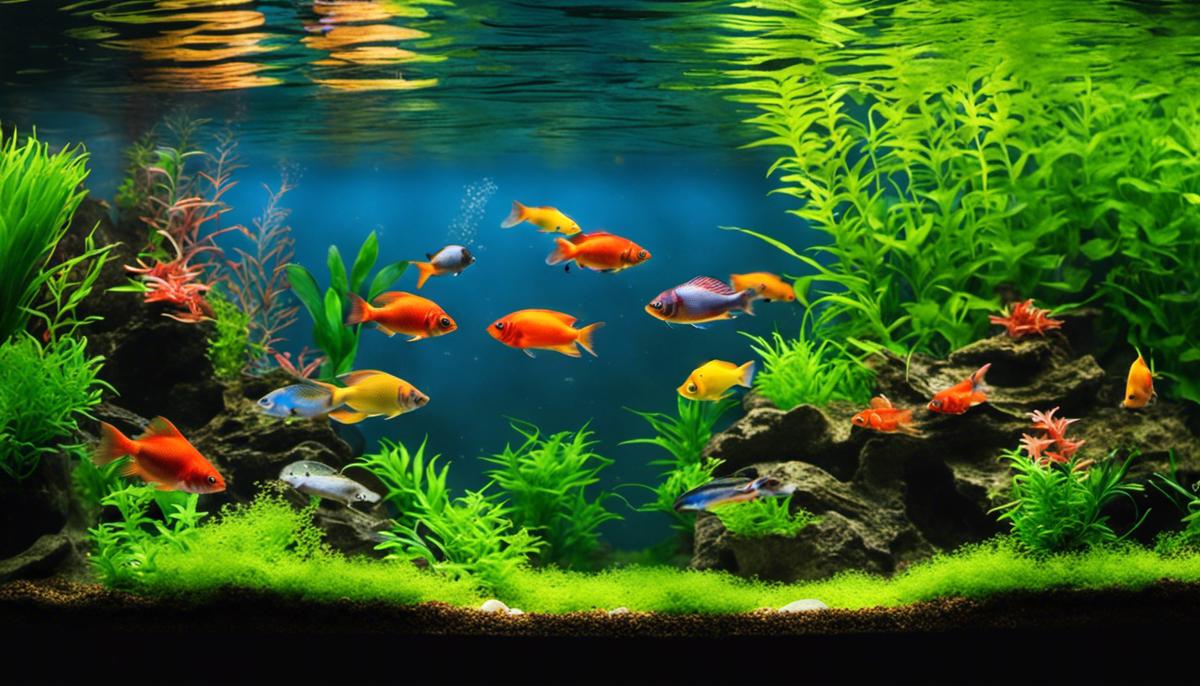
Common Challenges and Troubleshooting
An In-depth Look at Disease Prevention in Marine and Freshwater Fish Care
An issue encountered by keepers of both marine and freshwater fish is disease prevention. There are various diseases common to each environment. For instance, in marine tanks, ailments such as Marine Ich (also more commonly known as White Spot Disease), Marine Velvet, and Lateral Line Erosion often occur. Conversely, freshwater tanks frequently deal with diseases like Ichthyophthirius (a type of freshwater ich), Fin Rot, and Dropsy.
Successfully preventing disease in both marine and freshwater fish involves routine supervision and the maintenance of a clean living space. Observing fish that are in good health decreases the likelihood of disease contraction and transmission. Vigilantly examining water conditions on a regular basis and noting any immediate changes is crucial. Moreover, isolating new fish prior to integrating them with those in the primary tank aids in mitigating the transmission of diseases.
Water Quality in Marine and Freshwater Tanks
Water quality is crucial for both marine and freshwater fish. However, the parameters differ between the two. For marine fish, salinity, water hardness, and pH levels play significant roles. On the other hand, freshwater fish require a balance in pH levels, water hardness, and temperature.
Maintaining water quality requires regular testing. Using water test kits allows fish owners to check on various parameters and adjust accordingly. Regular water changes also help keep parameters stable.
For marine tanks, it can be a bit more complicated due to the need to maintain appropriate salinity levels, which is not a consideration in freshwater tanks. This requires careful measurement of specific gravity or salinity during water changes.
Fish Compatibility in Marine and Freshwater Setups
Another common challenge in both marine and freshwater setups is fish compatibility. Some species get along well, while others may fight or even prey on each other. In marine tanks, size, temperament, and diet play crucial roles in determining compatibility. For freshwater tanks, similar factors apply, but water parameter preferences should also be considered.
When choosing fish for a tank, owners should research the species’ compatibility. Websites, books, and fish store employees can provide valuable information. It’s also essential to monitor the fish once they are introduced into the tank to ensure no compatibility issues arise.
Prevention Measures and Troubleshooting
Having preventive measures at the ready can save both marine and freshwater fish owners considerable trouble. This commonly entails having quarantine tanks on standby, regular water testing, and conducting thorough research on the needs of each fish species.
Troubleshooting any issues should begin with water testing and checking for any visible signs of disease or distress among the fish. Frequent observation will often alert fish owners to impending issues before they become severe problems.
Overview of Marine and Freshwater Fish Care
Regardless of the type of fish being cared for, marine and freshwater species present their own unique sets of challenges. Yet, by gaining the appropriate knowledge and adopting preventive measures, fish owners can successfully navigate these difficulties and create a conducive, vibrant environment for their aquatic pets.
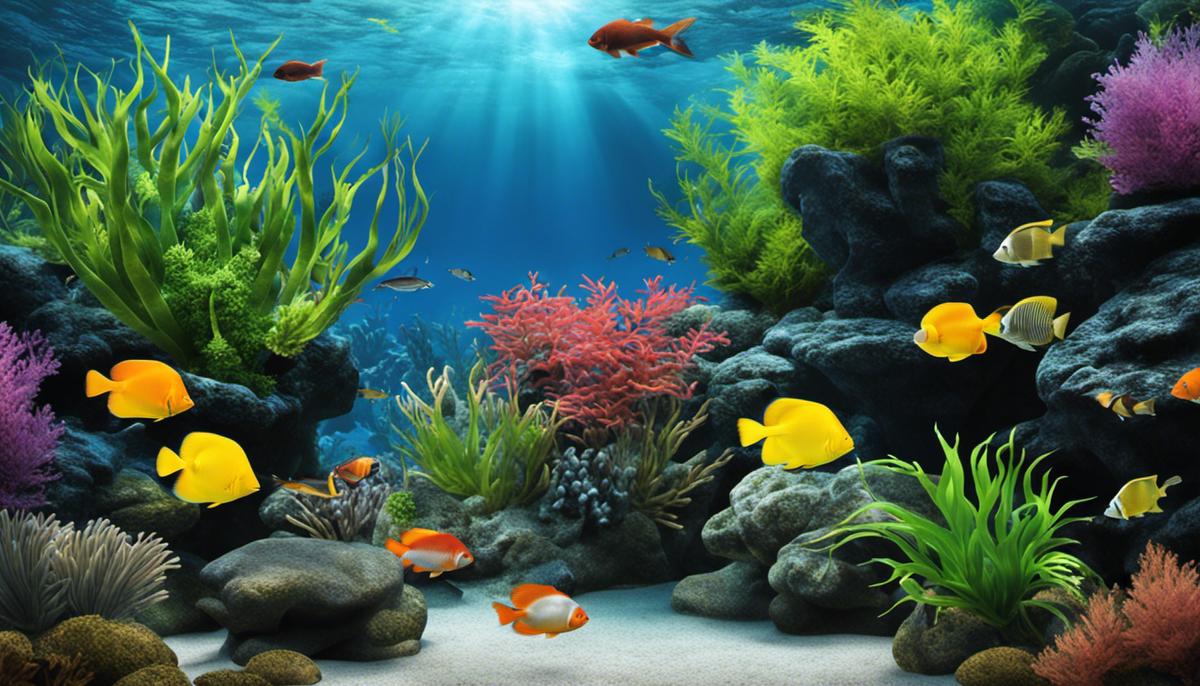
Choosing Between Marine and Freshwater Fish Care
Diving Deeper into Marine Fish Care: A Greater Commitment
Compared to freshwater fish care, maintaining an environment for marine fish requires a higher level of dedication. This commitment ranges from the initial setup of the tank to the routine interactions, such as feeding and monitoring the health of the fish. Beyond this, the marine tank’s water needs special preparation due to its saltwater composition, which necessitates an understanding of marine chemistry. Additionally, marine tanks tend to be larger than freshwater tanks, leading to increased costs both during setup and for ongoing maintenance.
Exploring Freshwater Fish Care: Simplicity and Diversity
In contrast, freshwater fish care is less daunting for first-time fish owners, as it demands fewer resources and expertise. The makeup of freshwater makes it easier to manage, and there is less need for explicit monitoring of the tank conditions like salinity. Freshwater tanks also generally require smaller aquariums than marine tanks, which translates into lower setup costs and maintenance expenses.
Maintenance Difficulty: Comparing Efforts in Caring for Marine and Freshwater Fish
When comparing the maintenance difficulty of marine to freshwater fish care, the former generally requires more meticulous attention. Marine fish are more susceptible to small changes in environmental conditions, like temperature, pH, and salinity. In contrast, freshwater fish are generally hardier and can tolerate a wider range of conditions, making their care less intricate.
Cost of Commitment: Weighing the Expenses
The initial cost of setting up a marine aquarium can be significantly higher than setting up a freshwater tank. This is mainly due to the equipment required, such as protein skimmers, calcium reactors, and the need for live rock or coral in many cases. The ongoing upkeep costs, including food, treatments, and potential higher utility bills due to the equipment’s energy consumption, also make marine fish care a more expensive endeavor than freshwater fish care.
Species Variety: The Potential to Diversify Your Aquarium
Both marine and freshwater aquariums offer a wide range of species. Marine fish are often praised for their vibrant colors and unique behaviors. However, marine species are also more difficult to breed in captivity, which can limit their availability and increase their cost. In contrast, freshwater species are generally more accessible and diverse, with many species readily breedable in aquarium conditions, making it possible for freshwater aquarium enthusiasts to populate their ecosystem with a cornucopia of fascinating creatures.
Personal Preference: Choosing What Appeals to You
Ultimately, personal preferences play a crucial role in deciding between marine and freshwater fish care. If you’re drawn to the vibrant beauty and challenge of caring for coral reefs and saltwater fish, a marine tank might be worth the higher level of maintenance and expense. But if simplicity, cost-effectiveness, and a wide variety of easily accessible species are more your preference, a freshwater tank might be your best bet. Don’t rush your decision. Consider not only the setup effort and cost but also the long-term care and commitment required for each type of aquarium.
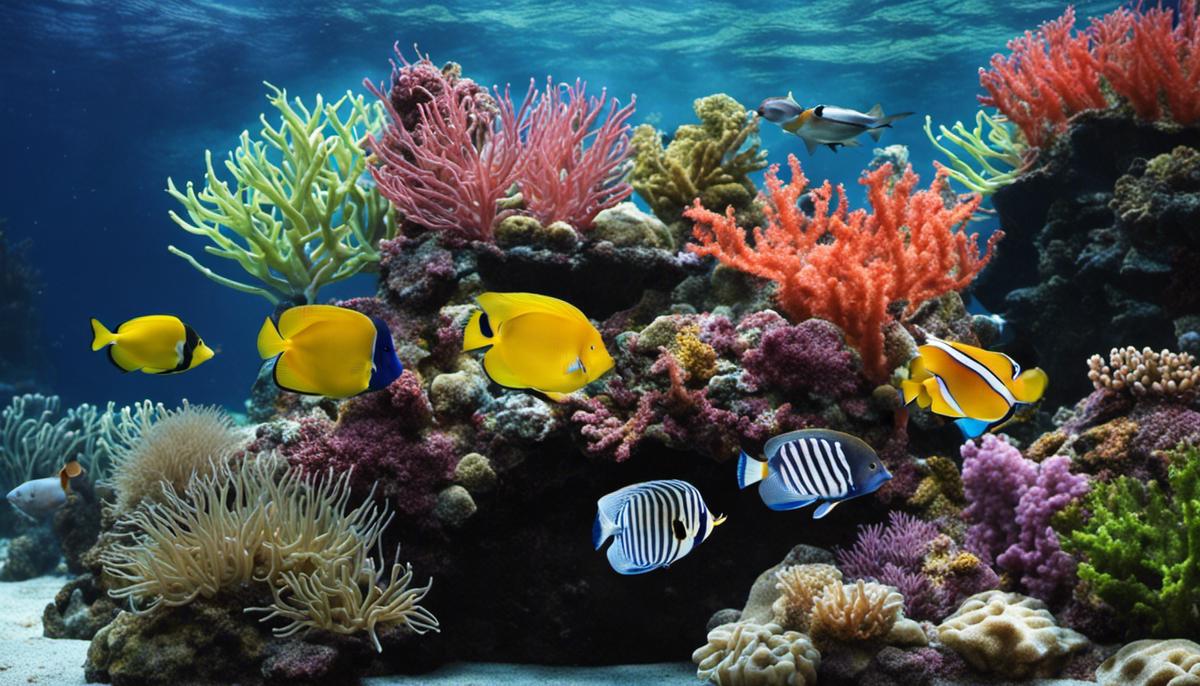
Entering into the hobby of fishkeeping brings about a new appreciation for aquatic life, and the choice between marine and freshwater fish often boils down to personal preference, financial capabilities, commitment, and skill level. Each setup possesses its unique charm, with one offering the serene tranquility of the freshwater landscape and the other delivering the vibrant allure of the marine world. However, it’s evident that both demand knowledge, understanding, and responsibility. Through this comprehensive guide, we hope that we were able to provide aspiring fish owners a springboard to launch their journey into the delightful world of fishkeeping, no matter the path they decide to take. Remember, no matter your choice, the goal is to create a tranquil, sustainable, and healthy environment for your aquatic pets where they can thrive and bring joy into your everyday life.
ChasingNemo.com is a participant in the Amazon Services LLC Some of the links in our posts are affiliate links. Click Here For Full Disclosure.

